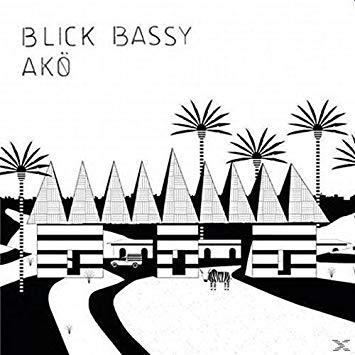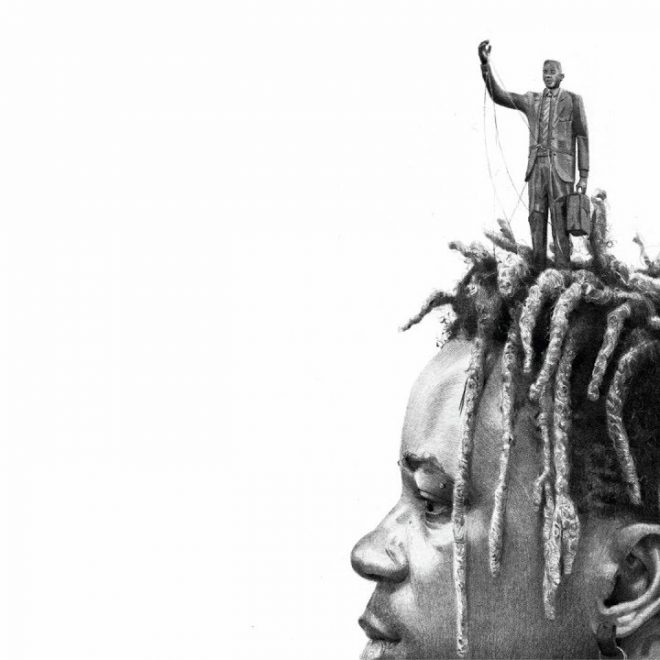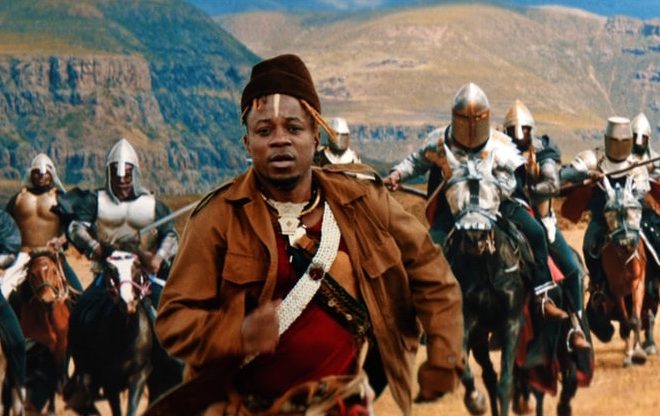Who is Blick Bassy?
Bassy is a global music star who grew up in a village called Mintaba in central Cameroon. While his band were renowned in his home country, after winning a French music award he relocated to Paris in search of bigger and better opportunities. He has claimed that this emigration crystallised his own Cameroonian identity and gave him a desire to tell the story of his country and continent to a wider audience.1
He sings in Bassa, one of 260 different languages in Cameroon, as he says this is the language that his thoughts occur in.2 His use and promotion of his native tongue goes beyond this however, as he also believes that Cameroonian people need to maintain the usage of their local languages so that they do not disappear along with their heritage.3 He has stated that his own stardom is a vindication of sticking to the language you know rather than singing in English or French simply to appease others.4
Bassy’s own family was heavily involved in the struggle for his country’s independence; his mother and his grandparents on her side were pro-independence, and they hid in the rainforest or ‘maquis’ in order to escape arrest by the French administration. His mother actually grew up in a village very near o that of the leader of the UPC rebels, Ruben Um Nyobè.5 Conversely, his father was on the side hunting them and the rest of the rebels as part of the police force.6
His ‘1958’ album
“Blick Bassy has dedicated his latest album, '1958', to Ruben Um Nyobè and the heroes of the Cameroonian Independence, in the hope of breaking that silence forever and reconnecting the people with their true history”
(Ngwa, 1958)
Bassy had already worked on the piece before making it into a musical album, taking the ideas behind ‘1958’ to the stage at the Africolor festival.7 His desire to tell the story of Nyobè and his associates partly stemmed from his own family history as we have seen, but also largely because of his sadness in their sacrifice not being recognised by their own country after all this time. Much of the music on the album is about reprimanding those who have forgotten what the UPC did for the future of their country and live in ignorance of those who have come before them.8 Bassy himself had been taught that Um Nyobè was a terrorist in school, and it was only until he did his own research that he discovered the true history of the pro-independence leader. Thus, in many ways what Bassy wants is to make sure that other young Cameroonians are not fed the same lies, and to encourage them to educate themselves so that they can reconnect with their roots.9
The UPC struggle for independence
While we shall explore in far greater detail the conflict between the UPC and the French colonial administration in the next section, it is worth having in mind some of the key events leading up to the murder of Um Nyobè by French forces in 1958:
Bassy’s album deals with many aspects of the conflict and its subsequent consequences for the Cameroonian nation, but they largely fall into three key groups:
Sacrifice - The War itself
Ignorance – The Silence that followed
Resurrection – Bringing the UPC back into the national conversation
Through a detailed literary and historical analysis of Bassy’s lyrics within each of these groups I hope to better understand a part of Cameroonian history which can be somewhat inaccessible for historians working on the basis of more traditional sources and archives.
[1] Sophie Eastaugh CNN for, ‘How an Apple Ad Changed Blick Bassy’s Life’, CNN
[2] Laura Barton, ‘Blick Bassy: “I Want to Expose the Dangers of the Immigration Dream”’, The Guardian, 9 September 2015, section Music
[3] CNN.
[4] Blick Bassy on ‘reconnecting Africa with Its Roots’ - BBC What’s New?
[5] Blick Bassy on ‘reconnecting Africa with Its Roots’ - BBC What’s New?
[6] David Honigmann, ‘Blick Bassy: 1958 — a Dive into the History of Cameroon’, Financial Times, 2019
[7] ‘World Music Matters - Cameroon’s Blick Bassy Remembers 1958 and His Fallen Hero’, RFI, 2018
[8] Robin Denselow, ‘Blick Bassy: 1958 Review | Robin Denselow’s World CD of the Month’, The Guardian, 22 February 2019, section Music
[9] Blick Bassy on ‘reconnecting Africa with Its Roots’ - BBC What’s New?





